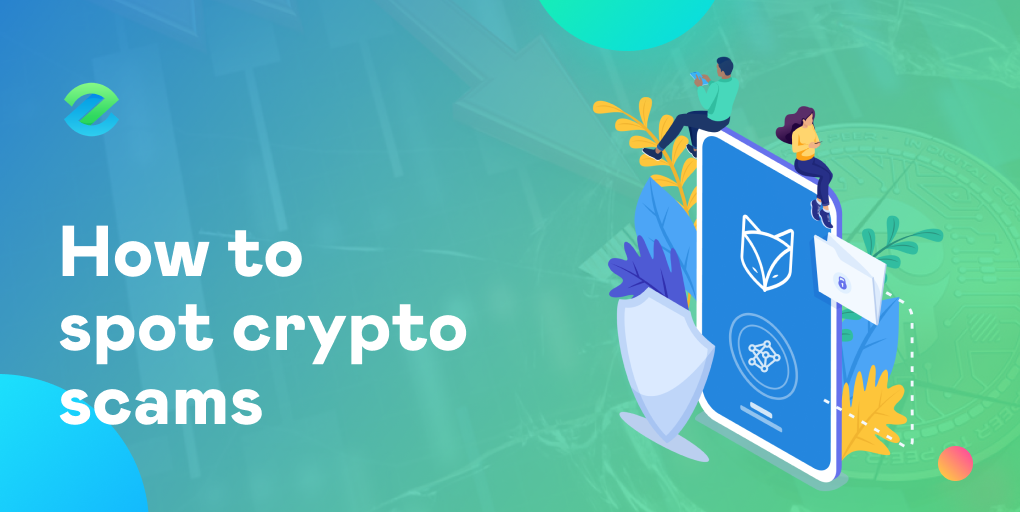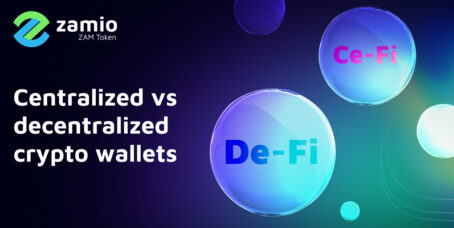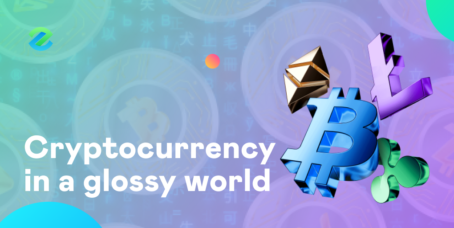With the growing popularity of cryptocurrencies, one-day tokens began to appear. With the help of such virtual currencies, the attacker takes money on the desire to quickly increase his capital. For example, you have seen the hype around Dogecoin. Then, out of nowhere, a bunch of other coins started appearing with “doge” in their name.
These coins are in a sense fueling the FOMO (feeling of missing out) that other market participants are experiencing and see this random coin as another ticket to a carefree future. We are not saying that all altcoins are scams. The purpose of this post is to help all crypto investors get a general idea about this issue. If this article was useful to you, then send a link to it to another crypto investor.
Table of Contents
Scam types
Fraudsters rarely work the same way. Most often, they come up with their own special approach to each situation. Nevertheless, experts distinguish several types of scams.
First, let’s look at scams in terms of implementation complexity:
- Explicit ICO scams – in this option, the organizers do not particularly bother with the development of the project. They are betting on mass production in the hope that someone will take the offer and invest money. And according to statistics, their hopes are justified – a few people out of a thousand are surely tempted by the idea.
- In the second variant, things are more serious. Not only the idea is already present here, but also a rather tolerable description of it. To understand that before you is just another fundraising project, only a rigorous analysis will help.
- High-quality scams – everything is worked out at the highest level. It will be difficult even for a specialist to recognize such scams.
- ICO scams are also distinguished by the duration of their existence. In this case, one can distinguish:
- Short-term;
- Long-term.
The first appear, quickly collect funding and disappear. The latter for a long time are able to fool investors, both real and potential. Take at least OneCoin. Most have long understood what this project is and bypass it, however, from time to time there are gullible contributors who bring their hard-earned money to the organizers.
You can also select scams:
Intentional;
Unintentional.
With an intentional scam, everything is extremely simple – the organizers initially know that they are not going to create or implement anything. The main thing is to sell more tokens, collect money and disappear with them in time.
With unintentional, the situation is somewhat different. Here, up to a certain time, the matter can be approached with all seriousness. And only at some point everything goes awry: either one of the creators is possessed by exorbitant greed and he hides with the collected funds, or the team quarreled and there is no one to continue the project. As an option – there is not enough competence to finish what has been started.
How to spot scam
These are the main types by which scam can be divided. Now let’s move on to the most important question – how to recognize them.
Analyze projects
Before buying tokens of a particular project, you should carefully study it. A cursory examination of the proposal will not help; deep analysis is required here. Experts advise dividing the project into several components and disassembling each one separately. The classical approach involves the analysis of four “T”:
- Theme or concept;
- Tech or technology, code;
- Team;
- Token.
Concept
Understanding how viable and economically useful the concept of the project is a prerequisite. Often such an analysis is not carried out even by the organizers themselves, relying on chance, which in the end may end in failure in the future.
The first thing we do is read the description, study the Roadmap and White Paper. If everything is extremely clear and understandable, we put a plus for the project according to this indicator. If after reading there are continuous questions, you have a reason to take a closer look at the project and not rush to buy tokens at the ICO.
Technology
Independently evaluate the technology and understand how realistic it is to implement from the point of view of production, not everyone can do it. Only a specialist can do this. However, no one forbids asking those who are well versed in this matter. Often people are ready to help absolutely free of charge. Suitable for this specialized forums, chats in Telegram.
Finally, ask leading questions to the project team itself. If it is not scammers behind it, they will try to answer you in a qualified manner. Otherwise, the answers will be blurry and vague. In some cases, you may not get a response at all. After that, it will immediately become clear what kind of project it is.
Team
The team should even be put in first place. Because the most magnificent idea can be ruined by banal incompetence. We begin to analyze the team with the creators of the project. We are looking for as much information about each of them as possible.
Social networks, forums will come to the rescue. We find profiles on Facebook, Twitter and other similar services. We look at how involved people are in public life, how many friends they have, what discussions they participate in. Perhaps they commented on some messages on the forums, left blog entries. We study where and with whom they worked, what experience, professional skills.
Token
The token itself should be subjected to no less close analysis. We verify its designation in all the documentation submitted by the project. We are looking for the token economy or token design section and see how it is designed. We study how many coins are issued, what economic indicators stand behind them, due to which the cost of the token will increase. Is there a buyback of coins, do the organizers offer bonuses for owners.
Website and domain
Let’s start with the domain. Note how long it has been registered. After all, any idea does not appear from scratch. It takes time to work through it. And therefore, if the domain is a couple of months old, it looks at least strange. We also check what used to be on the domain in the web archive, see if there are backlinks to it. We check the data on the who.is service.
Conclusion
Before calling this or that project a scam, you need to understand that there are really fraudulent projects, and there are those that simply may not “shoot” for one reason or another. To identify the first, you need to make every effort. With the second – already as lucky.








